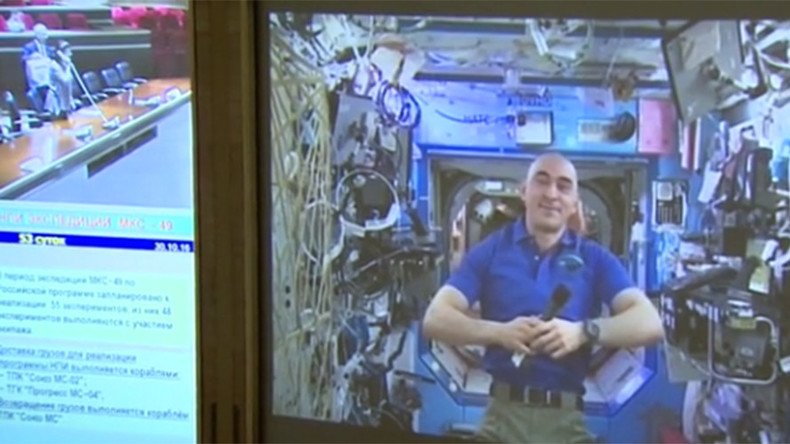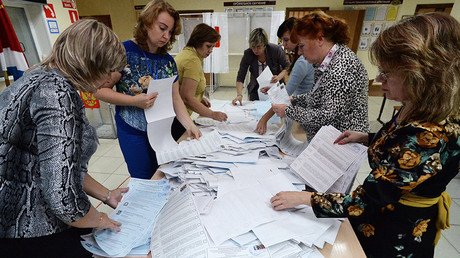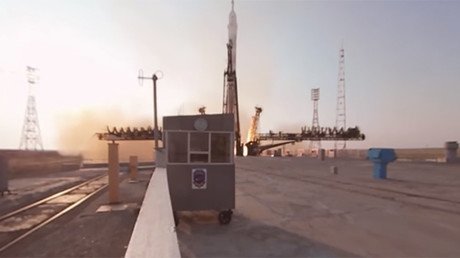Voting from the ISS: Video link for cosmonauts, email for astronauts
Anatoly Ivanishin has joined a very select club of voters who have voted from space more than once. The only Russian currently on the ISS, who cast his ballot in Sunday’s parliamentary vote, was also on the space station during the last election in 2011.
In a televised broadcast, Ivanishin, who has been on the International Space Station since July, publicly declared that he authorized Oleg Kononenko, deputy leader of the Russian cosmonaut squadron, to cast his vote for him.
The two cosmonauts were then connected by a private uplink, in which Ivanishin declared his preference. Kononenko placed his paper ballot into a transparent polling box, placed in the middle of Mission Control, located outside of Moscow.
Voting through proxies is not usually allowed under Russian law, but a special exemption is made for the handful of people who have had to do this from space.
A member of Expeditions 48 and 49, on which he is serving as commander, Ivanishin was also a member of crews 29 and 30, spending 165 days in space between November 2011 and April 2012 – with the previous parliamentary vote coming on December 4, 2011.
Although no official statistics are kept, judging from the mission times, Ivanishin is the first cosmonaut to have participated in two national parliamentary elections while in space.

Voting from orbit is a time-honored tradition which originated in the Soviet Union. Despite a formal respect for secret ballots, cosmonauts in the one-party state would proudly and publicly declare their allegiance to the Communist Party, of which they were always members, during a broadcast shown on the evening news.
Ivanishin has no declared party allegiance, but some of the USSR’s most famous cosmonauts, including Valentina Tereshkova, the first woman in space, have become prominent politicians. Elena Serova and Anton Shkalperov, two recent ISS visitors, are both on the ballot as United Russia candidates for Sunday’s vote, and could become members of the Duma.
Russia is not the only space superpower preoccupied with orbital voting.
Without a US space station in the 1980s, this was not an issue for American astronauts until they began joining the Mir space station crews in the late 1990s.
In 1996, John Blaha was asked about his vote in the presidential election that pitted Bill Clinton against Bob Dole, and, to the great embarrassment of Houston, had to admit that he had no chance to participate.
With help from then Texas Governor George W. Bush, staff at the Johnson Space Center were able to persuade lawmakers to develop a special procedure.
Since 1997, US astronauts, whether on the Mir, or currently on the ISS, receive an electronic voting form, which they then send back to Earth encoded, and then have added to the rest of the ballots.














